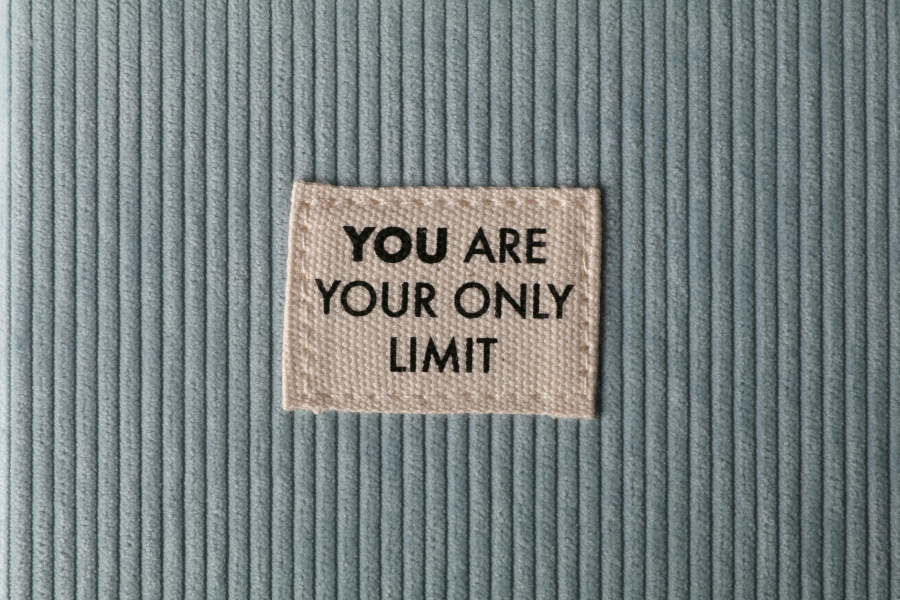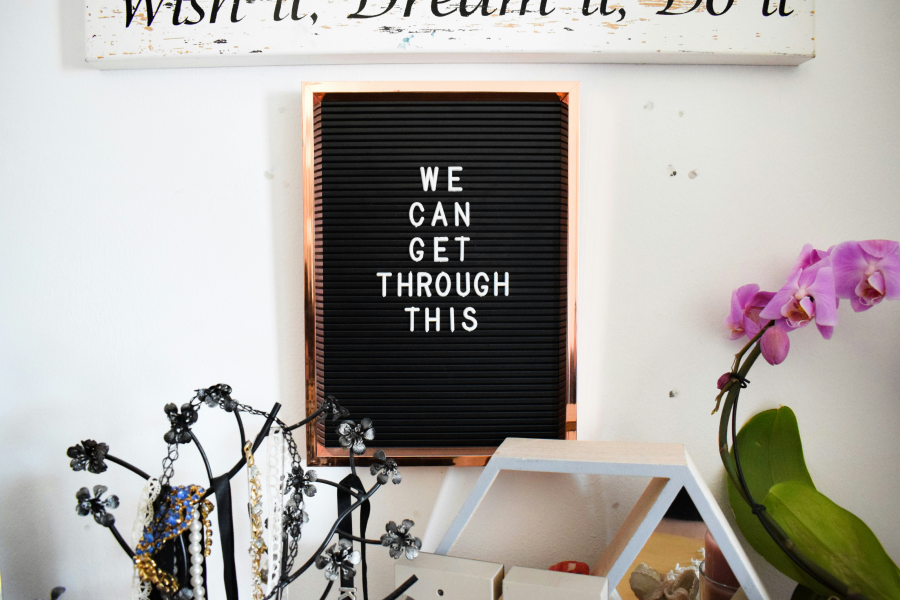
Short positive thinking quotes are often dismissed as simplistic or overly idealistic. However, for many high achievers, they serve as mental anchors. In challenging moments, a few well-chosen words can sharpen clarity, restore focus, or reignite inner drive. This is not wishful thinking—it’s strategic optimism. These quotes can guide behavior, support healthy mindsets, and increase resilience in daily life. Anyone who has reached measurable success knows: the mind must be trained like any muscle. A single quote, when used consistently, can rewire thought patterns and redirect emotional energy.
Research supports this—brief affirmations repeated daily have a lasting cognitive impact. Therefore, integrating short positive thinking quotes into morning routines, office decor, or journaling habits is far from trivial. It is, in fact, a powerful daily practice. One can start by placing visual reminders in high-traffic areas. A great example is the “make a difference” acrylic desk sign, which delivers both style and intention. Such tools silently influence the subconscious. They plant seeds of encouragement and drive in moments when distractions or doubt take hold. And in the long run, they help create mental consistency—which is where sustainable success begins.

To truly benefit from short positive thinking quotes, they must be applied with intention. Reading a quote once and forgetting it serves little purpose. The key lies in consistent exposure and repetition. Experts in behavioral psychology emphasize the role of cognitive priming. When the brain is repeatedly exposed to empowering messages, it becomes more receptive to success-oriented behaviors. That is why so many high-level professionals curate inspirational spaces. For instance, placing the "you can make a million dollars" print in a workspace transforms a plain wall into a mental launchpad. These types of framed visuals are not mere decorations—they are functional tools. They work as micro-motivators throughout the day. When used correctly, short quotes also reduce cognitive overload. Instead of long paragraphs or books, these bite-sized messages are easier to recall and apply. They serve as quick resets during stressful moments. Incorporating them into email signatures, phone wallpapers, or daily planners is another smart method. For the best results, align quotes with personal goals. If the aim is consistent self-improvement, a phrase like “1% better every day” acts as both reminder and motivator. Use quotes as benchmarks. Ask daily—was this a 1% improvement day? This habit builds long-term momentum, often with surprising speed.

Not all quotes work for everyone. The most impactful short positive thinking quotes are those that align with personal values. Meaningful quotes act like personalized mantras. When selecting them, consider what challenges need to be overcome. Is the goal financial success, emotional strength, or creative clarity? Choose quotes that answer those questions with confidence. For example, entrepreneurs often face uncertainty and fatigue. A quote about perseverance or vision can help. Something like “The comeback is always stronger than the setback” creates emotional fortitude. Artists or creators benefit from quotes that reinforce belief in originality and purpose. An inspirational canvas poster hanging in a studio may deliver far more than aesthetics—it may be the voice that says, “keep going” when results are delayed. It’s also important to rotate quotes as goals evolve. A quote that helped during a career transition might not suit a new entrepreneurial phase. Keep a quote journal or mood board. Test what phrases create motivation, then double down on them. Avoid generic language. Specific quotes with emotion and clarity work better. Words backed by experience tend to strike deeper chords. A quote that once inspired a titan of industry may now guide a new generation building their empire.

There is more to short positive thinking quotes than intuition or anecdotal evidence. Studies in neuroscience and psychology show that language directly impacts brain function. Positive words activate the prefrontal cortex—the part responsible for planning, decision-making, and emotional regulation. Over time, this can reduce anxiety and increase problem-solving abilities. One of the most effective methods of applying this science is through repetition. That is why many successful people develop quote rituals. They don’t just read quotes—they embody them. They repeat them during workouts, meetings, or commutes. Wall art like the motivational quotes wall art canvas serves this exact function. It isn't just decorative—it supports neurological priming. Words seen daily shape beliefs. Beliefs shape behavior. Behavior creates outcomes. This isn’t magic; it’s mental training. Additionally, those who engage in daily positive affirmation report better sleep, higher productivity, and lower levels of self-doubt. Even athletes use this technique. Olympic trainers often rely on quick affirmations during drills. It keeps the mindset focused and eliminates negative distractions. The simplicity of short quotes is exactly what makes them so neurologically potent.
To maximize impact, short positive thinking quotes must be embedded into existing routines. This means integrating them into places already part of daily life. Bathroom mirrors, phone lock screens, planner covers, or desktop wallpapers all offer high-frequency exposure. Morning routines benefit from spoken affirmations. Saying a quote aloud reinforces memory and personal connection. Try pairing a quote with a task. For example, while brushing teeth, recite a phrase like, “Today, I rise with clarity.” When this pairing becomes habit, the quote becomes mentally automatic. Workplace integration is also powerful. Visuals like the inspirational acrylic desk sign enhance both mood and productivity. Quotes in shared spaces foster positive team environments. At home, use framed prints in living areas to support a growth-focused household. Consider setting up a “quote corner” with rotating phrases. Use this space to reflect or reset during high-stress moments. Quotes can also be written in goal-tracking apps or printed on planners. Digital calendars can start each day with a quote notification. Pairing quotes with journaling or meditation amplifies their emotional power. The more ways quotes are woven into life, the more effective they become.

In today’s fast-paced world, attention spans are short. That’s why short positive thinking quotes have become increasingly popular. They fit neatly into digital formats and quick daily routines. Social media platforms are flooded with motivational snippets, often reshared thousands of times. The reason is clear: people crave quick inspiration. But beyond trendiness lies a deeper shift in mental health awareness. More professionals, educators, and influencers are advocating for mental resilience. The modern workforce is also more focused on balance and wellbeing. As a result, products like motivational wall art and quote-based planners are booming. The rise of minimalist design has merged with psychological utility. People want their environments to look good and feel good. Quote posters and digital prints meet both needs. In remote work culture, personal spaces now double as productivity zones. That’s why visual affirmations are so effective. A quote like “Be bold. Start now.” posted near a work desk isn’t just decorative—it’s direction. The next phase of this trend is personalization. Consumers want to choose quotes that reflect their unique journey. The demand for customized quote art and posters is rising. It’s a powerful shift—from mass messaging to meaningful, individual encouragement.
Incorporating quote-based products into everyday life delivers multiple benefits. First, they improve mental resilience. When the mind is flooded with distractions or stress, quotes create fast emotional recalibration. Second, they increase motivation. A strategic quote can spark action in moments of hesitation. Third, they create aesthetic harmony between design and intention. A well-placed quote poster serves both emotional and visual function. The inspirational quote canvas poster is a great example of this dual utility. Fourth, these products are accessible.
They require no expertise to use. Anyone, regardless of age or experience, can benefit. Fifth, they create a sense of personal philosophy. Surrounding oneself with chosen phrases builds a language of identity. Sixth, they foster consistency. When a quote is seen 10 times a day, it becomes part of thought processes. Seventh, they promote discipline. A quote like “1% better every day” supports incremental progress. Eighth, they can influence others. Guests or coworkers who see inspirational signage may feel uplifted. Ninth, they enhance focus. Quotes can act as mental bookmarks throughout the day. Tenth, they serve as emotional safety nets. On hard days, a single quote might be the reminder that helps someone keep going.

In essence, short positive thinking quotes are not a trend—they are a performance tool. So, they serve as consistent motivators, cognitive guides, and mood lifters. When integrated thoughtfully into one’s environment and routines, they generate measurable improvements in focus, mood, and momentum. Whether using visual tools like the motivational quotes wall art or mental mantras during tough decisions, their power is undeniable. In a distracted world, clarity is currency. And clarity often begins with a single sentence that sparks belief. So start today. Choose one quote. See where it takes you.
Top picks just for you